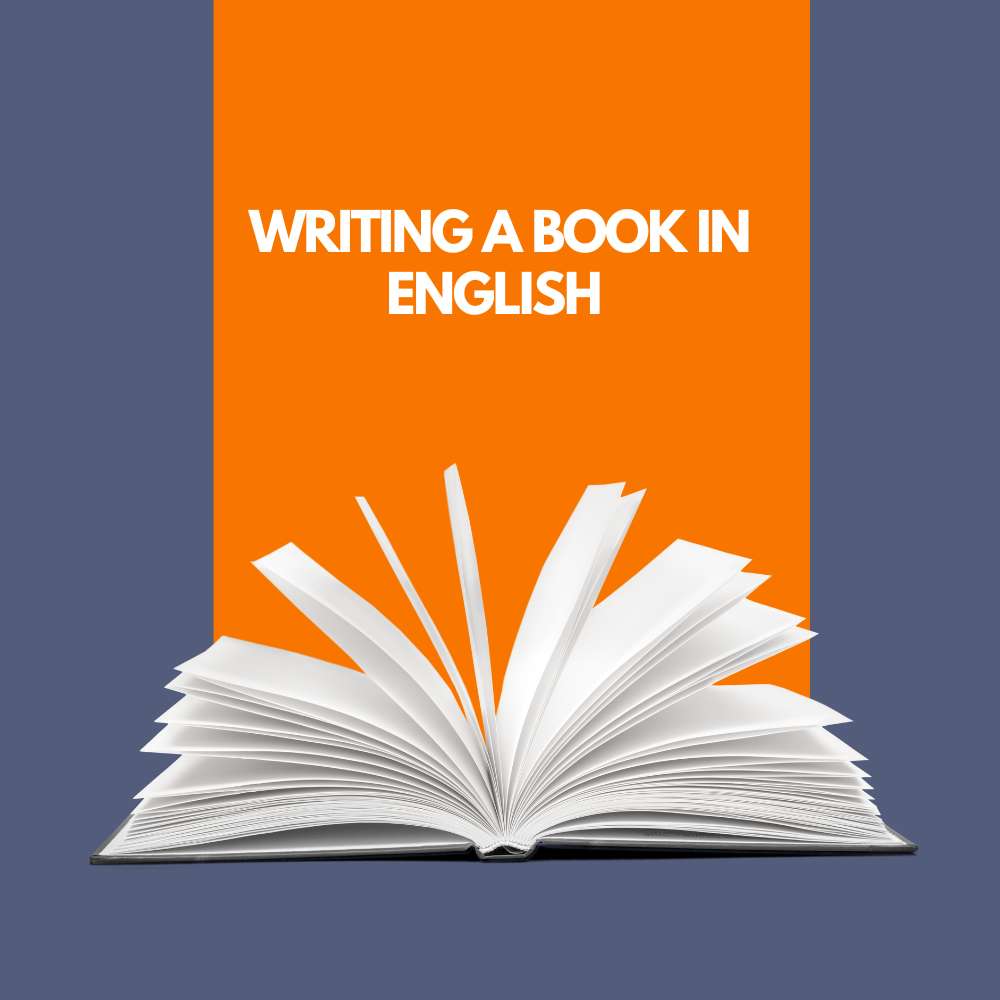Writing a Book in English When English Isn’t Your First Language
Writing a book is a monumental task, and for non-native English speakers, it can present unique challenges and opportunities. While the journey may seem daunting, it is also incredibly rewarding. This guide aims to provide practical advice, insights, and encouragement for those looking to write in English despite it not being their first language.

Understanding the Challenges
Language Proficiency
One of the most significant challenges faced by non-native speakers is the level of proficiency in English. While many individuals may have a strong grasp of the language, nuances, idiomatic expressions, and cultural references can pose difficulties. It’s important to recognize that perfection is not the goal; clarity and authenticity are paramount.
Cultural Nuances
Cultural context plays a vital role in writing. Non-native speakers may struggle with cultural references that are commonly understood by native speakers. Understanding the cultural backdrop of the language can enhance the depth of your writing and make it more relatable to your audience.
Self-Doubt
Many non-native writers experience self-doubt regarding their language skills. This can lead to hesitation and fear of criticism. It’s essential to acknowledge these feelings but not let them deter you from pursuing your writing goals.
Embracing Your Unique Perspective
Value of Diverse Voices
Non-native speakers bring unique perspectives and experiences to their writing. This diversity can enrich storytelling, offering fresh viewpoints that resonate with readers. Embrace your background and use it as a strength in your writing.
Authenticity in Expression
Writing in English allows you to express yourself in a new way. Your voice may differ from native speakers, but that difference can be an asset. Readers often appreciate authenticity, so don’t shy away from incorporating your unique style into your work.
Preparing to Write
Reading Widely
Reading extensively in English can significantly improve your language skills and understanding of narrative structure. Explore various genres and styles to familiarize yourself with different writing techniques and vocabulary.
Building Vocabulary
Expanding your vocabulary is crucial for effective communication. Keep a journal of new words and phrases you encounter while reading or listening to English media. Use these words in your writing to enhance clarity and expression.
Practicing Writing Regularly
Set aside time each day or week to practice writing in English. This could involve journaling, blogging, or working on short stories. The more you write, the more comfortable you will become with the language.
Structuring Your Writing Process
Outlining Your Ideas
Before diving into writing, create an outline of your book. This helps organize your thoughts and ensures a coherent flow throughout the narrative. An outline serves as a roadmap for your writing journey.
Setting Realistic Goals
Establish achievable writing goals based on your schedule and comfort level with the language. Whether it’s a word count per day or completing a chapter each week, setting realistic targets will keep you motivated.
Utilizing Writing Tools
Take advantage of various writing tools available online. Grammar checkers, thesauruses, and style guides can help refine your work and enhance clarity. These tools are valuable resources for non-native speakers looking to improve their writing.
Revising and Editing
Embracing Feedback
Seek feedback from native English speakers or fellow writers who can provide constructive criticism on your work. Join writing groups or workshops where you can share your writing and receive valuable insights.
Professional Editing Services
Consider hiring a professional editor who specializes in working with non-native writers. They can help polish your manuscript by addressing language issues while preserving your voice.
Self-Editing Techniques
Develop self-editing techniques to improve your manuscript before seeking external feedback. Read your work aloud to catch awkward phrasing or grammatical errors. Additionally, take breaks between writing sessions to return with fresh eyes for editing.
Navigating Publishing Options
Traditional Publishing vs. Self-Publishing
Decide whether you want to pursue traditional publishing or self-publishing based on your goals and resources. Traditional publishing often provides more support but may have stricter requirements, while self-publishing offers greater control over the process.
Building an Author Platform
Establishing an online presence is essential for promoting your book. Create an author website or blog where you can share updates about your writing journey, engage with readers, and showcase your work.
Marketing Strategies
Develop marketing strategies tailored to reach your target audience effectively. Utilize social media platforms to connect with readers interested in your genre. Consider creating content that highlights your unique perspective as a non-native writer.
FAQs
Is it possible to write a book in English if it’s not my first language?
Yes, many non-native speakers successfully write books in English. With dedication, practice, and the right resources, you can effectively communicate your ideas and stories in English. The key is to embrace the learning process and leverage your unique perspective as a non-native speaker to enrich your writing.
What are some tips for improving my English writing skills?
To improve your English writing skills, start by reading widely in English across various genres. This exposure will help you understand different writing styles and vocabulary. Additionally, practice writing regularly, whether through journaling, blogging, or working on short stories. Expanding your vocabulary by keeping a journal of new words and phrases you encounter can also be beneficial. Lastly, seek feedback from native speakers or fellow writers to gain insights into areas for improvement.
How can I overcome self-doubt about my language skills?
Overcoming self-doubt about your language skills involves acknowledging your feelings while focusing on the value of your unique perspective as a non-native speaker. Remember that many readers appreciate authenticity and diverse voices in literature. Surround yourself with supportive communities that encourage your writing journey, and remind yourself that every writer faces challenges—what matters is your commitment to sharing your story.
Should I focus on grammar and vocabulary before starting to write?
While improving your grammar and vocabulary is important, it shouldn’t prevent you from starting to write. Writing regularly will naturally help you improve over time. Focus on expressing your ideas first; you can always refine the language during the editing process. Allow yourself to write freely without the pressure of perfection initially.
How can I structure my writing process effectively?
To structure your writing process effectively, begin by creating an outline of your book to organize your thoughts and ensure a coherent flow. Set realistic writing goals based on your schedule and comfort level with the language, such as a specific word count per day or completing a chapter each week. Utilize writing tools like grammar checkers and thesauruses to assist you throughout the process.
How important is feedback in the writing process?
Feedback is crucial for improving your writing. It provides valuable insights into how readers perceive your work and highlights areas for improvement. Seek input from native English speakers or fellow writers who can offer constructive criticism. Joining writing groups or workshops can also facilitate feedback exchange, helping you refine your manuscript before publication.
Should I hire a professional editor?
If possible, hiring a professional editor can be highly beneficial, especially if they have experience working with non-native writers. A professional editor can help polish your manuscript by addressing language issues while preserving your unique voice and style. Their expertise can significantly enhance the quality of your work before it reaches readers.
What are my publishing options as a non-native speaker?
As a non-native speaker, you have several publishing options available to you, including traditional publishing and self-publishing. Traditional publishing often provides more support but may have stricter requirements regarding submissions. On the other hand, self-publishing offers greater control over the entire process but requires more effort in terms of marketing and distribution. Consider your goals, resources, and comfort level when deciding which option is best for you.
How can I market my book effectively?
To market your book effectively, start by building an author platform through an online presence, such as a website or blog where you share updates about your writing journey. Engage with readers on social media platforms relevant to your genre and develop marketing strategies tailored to reach your target audience effectively. Consider utilizing content that highlights your unique perspective as a non-native writer to attract readers interested in diverse voices.
What should I do if I encounter cultural differences in my writing?
If you encounter cultural differences in your writing, acknowledge them and consider how they may affect storytelling. Research cultural references that may be unfamiliar to readers to ensure clarity in your narrative. Embrace these differences as opportunities to enrich your story while striving for relatability. Your unique background can add depth to your narrative and offer fresh perspectives that resonate with readers from various backgrounds.
Conclusion: Embrace Your Journey
Writing a book in English as a non-native speaker is an enriching experience that allows you to share your voice with the world. Embrace the challenges as opportunities for growth, and remember that every writer has a unique journey. With dedication, practice, and perseverance, you can successfully navigate the complexities of writing in a second language and create a work that resonates with readers globally.
By following these guidelines and remaining true to yourself, you will find that writing in English can be both fulfilling and transformative. Your story deserves to be told—so take that leap of faith and start writing!
Discover marketing services, interviews & publishing tools at SharingStories.



